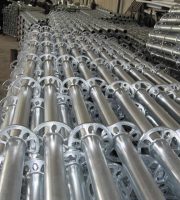As a change management, a complete and strict set of regulations shall be formulated in the early stage of the project Close change process to control all economic changes caused by construction and design changes.
The reason for the change, the change scheme and the technical and economic comparison with the original design shall be stated and submitted for approval.
There are also some key government projects, and the municipal leaders often rush forward and back to patronize these projects.
Even if there is no blueprint, he can make professional judgment, change necessity analysis and comprehensive balance according to the concept and description, that is, seek a new balance between function increase and cost increase..
The owner can’t feel good or bad when looking at the drawings and models, and there will be changes when making a model house.
Change the house type layout, building height and floor height; 6.
If it is changed in the design stage, only the drawings need to be modified, other expenses have not occurred, and the loss is limited; if it is changed in the procurement stage, not only the drawings need to be modified, but also the equipment and materials must be re purchased Purchase; in case of change in the construction stage, in addition to the above expenses, the demolition expenses of the constructed project must be increased, which is bound to cause major change losses.
However, transforming the change management process from traditional low efficiency, long cycle and high cost to efficient, timeliness, dynamic cost control and orderly management will give full play to BIM’s value.
The project change is through the personal will of the leaders, and it is often changed beyond recognition.
3.
Factors of the project change 1.
Zero construction change is just a beautiful vision.
Other reasons: the project change is caused by unforeseen natural factors, external environment of the project and fashion change of architectural style, and some terms of the original contract need to be revised and supplemented in combination with the actual conditions due to changes in objective conditions, such as: Design changes caused by geological reasons.
This kind of change will take a long time It’s out of control.
Reasons of the designer: design errors and omissions, inadequate design, design adjustment, or modification of specifications and standards, or design changes due to natural factors and other factors, or construction cannot be carried out due to inconsistency with the site; 3.
The designers and constructors are unbearable 2.
The standard for determining whether to change 1.
Suggestions put forward at the joint review of drawings and technical disclosure meeting Change; 8.
Engineering change There shall be strict procedures for the change.
4.
Some owners are “change addicts” Sometimes, on a whim, they ask to dismantle and redo, and the constructors are terrified when they see these owners coming.
Changes are often corrective changes, that is, the defects of previous design And error correction, which is caused by improper communication among members of various disciplines or the professional limitations of designers.
Zero construction change is just a beautiful vision.
The nature of design change and site visa is very different visa) It refers to the signing certificate made by the owner and the contractor according to the contract on the implementation of additional construction contents other than the contract price in the process of project construction.
Any project that does not conform to his preferences and aesthetic standards must be modified.
Increase or decrease the quantities agreed in the contract; 3.
The impact of the implementation of the change on the project (progress, cost and quality) 2.
Change the elevation, position and size of relevant parts of the project; 2.
Even the formal project is pushed down and started again because of unsatisfactory results and dissatisfaction.
It belongs to the category of design change, It must be handled according to the design change, rather than the on-site visa.
Change the construction sequence and time arrangement of relevant projects; 7.
The cost of design change shall generally be controlled within 5% of the total cost of construction and installation project, and the new investment generated by design change shall not exceed one-third of the basic reserve fund.
The key to the application of Bim in construction change management is process reengineering.
Design alternation refers to the change and modification of the design standard state expressed in the original construction drawings and design documents by the design department.
Reasons of the Contractor: construction methods, operation sequences and construction processes need to be changed due to construction quality or safety, sometimes encountering emergencies and special conditions Sometimes, it is purely for the convenience of construction and labor saving, and some make a new quotation through design change to make up for the loss of low bidding quotation.
Some changes are the improvement of requirements and functions, and unplanned changes are the main reason for project delay and cost increase in the project.
The earlier the change occurs, the smaller the loss, and vice versa.
5 engineering change analysis engineering changes have become the norm, and almost all engineering projects may change or even frequent changes.
1.
6 engineering changes Countermeasures the cost engineer shall calculate and analyze the change content before the change.
Principle of engineering change 1.
Increase or decrease the project contents agreed in the contract; 4.
The risk to the project caused by the non implementation of the change; 3.
Contents of engineering change 1.
Design changes should be made as early as possible.
Engineering change (EC) ), It refers to the changes made to the project that has been officially put into construction.
Engineering changes mainly refer to engineering design changes, but construction conditions and schedule changes Engineering change will also be caused by change.
Once the design is approved, it shall not be changed at will and the scope of change shall not be expanded at will; 2.
Reasons of the employer: changes in the owner’s own needs, project scale, use function and process flow Changes in the project, quality standards, construction period and other contract contents.
The construction without approval shall not be carried out according to the changed design; 4.
What’s more, some bad contractors buy the design and make modifications in favor of the contractor on the as built drawing to seek improper interests.
The risk to the project caused by the implementation of the change; 2.
Sometimes, it is construction error and have to ask for design change to make the error legitimate; 4.
Some changes are beneficial and necessary, while others are unnecessary and destructive.
However, transforming the change management process from traditional low efficiency, long cycle and high cost to efficient, timeliness, dynamic cost control and orderly management will give full play to BIM’s value.
It is one of the key factors affecting the project cost.
Change the project quality, nature or project type; 5.
Any kind of additional work that must be implemented in order to complete the project.
Design documents are the main basis for arranging construction projects and organizing construction.
The construction results seen by the owner deviate from what he wants.
Changes are inevitable, especially hardbound.
This is due to the lack of a good communication platform, and the application of BIM Technology is expected to change these disadvantages.
The key to the application of Bim in construction change management is process reengineering.
It is temporary and irregular and covers a wide range, such as design change, concealed works, material substitution, construction condition change, etc.
The drawing design requirements and depth of the project change are equal to the original design documents.
However, transforming the change management process from traditional low efficiency, long cycle and high cost to efficient, timeliness, dynamic cost control and orderly management will give full play to BIM’s value.
The key to the application of Bim in construction change management is process reengineering.
Source: BIM observation Classification: Frontier dynamics Contact number: 4008091886bim is applied to engineering design, so how is it applied in construction management? First of all, we should know what engineering change is.
During the implementation of the project, the changes made to some or all of the project in terms of materials, processes, functions, structures, dimensions, technical indicators, quantities and construction methods in accordance with the procedures agreed in the contract.
If the change process is not managed properly, it will cost a lot.
Engineering change shall have significant effects on improving functions, ensuring quality, reducing cost and accelerating progress; 3.
Reason of the supervisor: the change of construction process and construction sequence proposed by the supervising engineer for the sake of project coordination and favorable control of project objectives; 5.
Zero construction change is just a beautiful vision.



